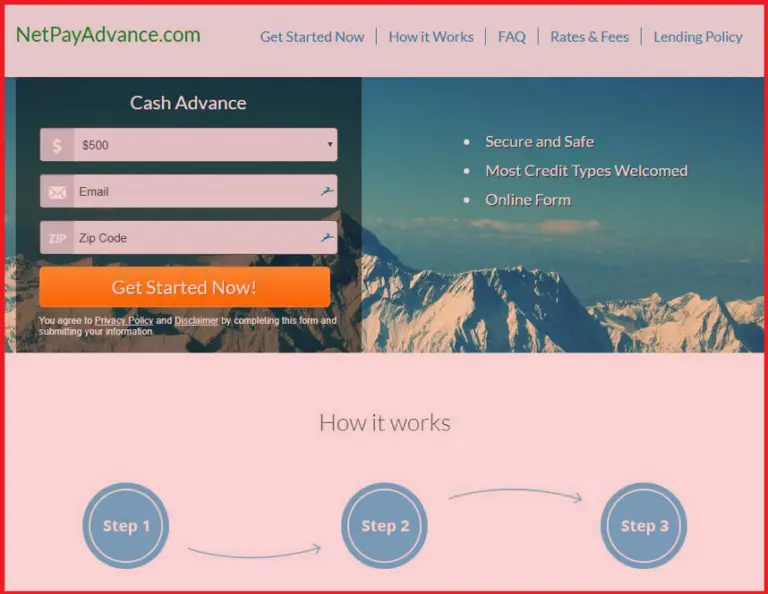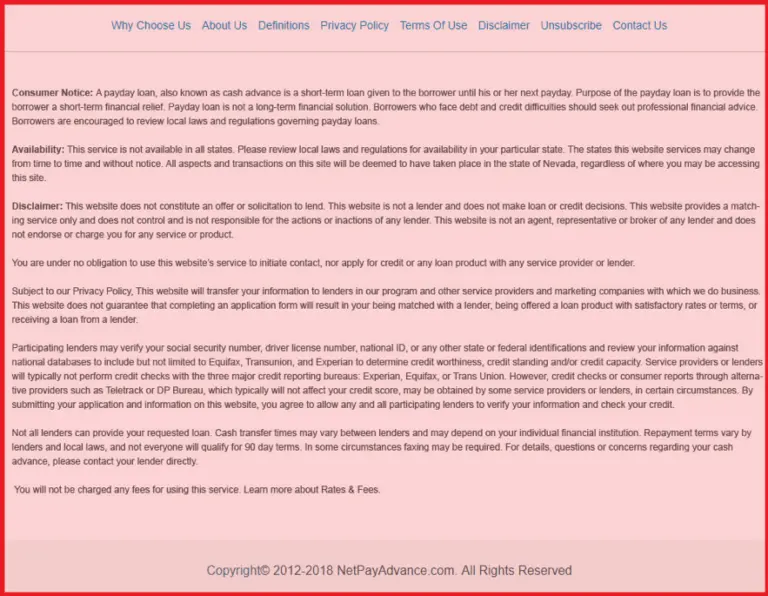Learn how to protect your family from loan scams, debt collection scams, and credit card fraud
This Halloween season you’re hearing spooky stories about witches, ghosts, and vampires. You’ve also likely heard the horror stories of stolen identity. Unlike most Halloween ghost stories, accounts of stolen identities, credit card frauds, and debt collection scams are true. According to one study, about one out of three people will experience identity theft. Thankfully, there are steps you can take to decrease your chances of falling victim to a scam! Best of all, these steps don’t require carrying salt, owning wooden stakes, or even avoiding bathroom mirrors.
At Net Pay Advance we take your personal and financial safety seriously. We use the latest security software and carefully handle all private information. In addition, we also provide resources like this article that can help keep you safe.
Before going further, we wanted to warn you about a fake website pretending to be us. The website www.netpayadvanceloans.com (image included below) is fraudulent and is not affiliated with us at all. If you ever have a question regarding a suspicious website or caller pretending to be Net Pay Advance, please contact our customer service team by calling 1-888-942-3320 or emailing [email protected].


Common types of scams
Loan Scams: Happen when someone lies and says they are Net Pay Advance, or another loan company, and then demands that you pay money upfront in order to obtain a loan. Net Pay Advance does not require a prepayment of any amount to be considered for a loan or to obtain one.
Debt Collection Scams: Unauthorized individuals or organizations illegally pretend to be a lender in order to steal money. They may call or email you to say that they’re with a loan company, and demand immediate repayment. These illegal companies are not affiliated with Net Pay Advance.
Credit Card Fraud: Any form of theft of a payment card, like a debit or credit card, is considered credit fraud. This includes the physical theft of a card or stolen information. These crimes can be committed multiple ways. Skimmers are devices that perpetrators put over the card slot of an ATM or gas station to copy the information from the magnetic strip of the card and record the PIN number. Phishing is when a scammer convinces someone into telling them their card details over the internet or phone. Unauthorized payments are another form of credit fraud.
Keep reading below for more information on how to avoid each type of scam.
Avoiding loan scams
There are easy ways to tell if an email or phone call is legitimate or fake. A scam email/call is often unsolicited, and they may even send you documents about a loan that you did not apply for with them. A phone call with a number of another country is likely a scammer. When receiving an email, check that the address includes the name of the company and isn’t sent from a personal email account (such as Gmail, AOL, or Outlook). McAfee has 7 more ways to tell if an email is fake. Be cautious anytime someone asks you to make a payment in advance of getting a loan. Net Pay Advance does require previous loans to be repaid before taking out a new loan, but we never require a prepayment of any sort of “fees” or “taxes” before taking out a brand-new loan. A scammer may likely ask you to load a balance onto a prepaid card, purchase a money order, or even send funds via Money Gram. The point of a payday loan is to provide people with money when they’re short on cash. It doesn’t make sense to charge someone upfront. Keep an eye and ear out for these red flags and hang up immediately if you encounter them. Please contact authorities if you think you’ve been a victim of this crime.
Avoiding debt collection scams
Debt collection scammers present themselves as a member of a loan company and pressure you to send them a payment right now. There are clear signs that anyone can watch out for and avoid. Scammers tend to be really aggressive and rude. They may threaten violence or criminal and legal action. They tend to act with urgency and demand immediate payments, even going as far as sending fake case numbers and outstanding amounts. No real loan company would ever threaten to tell your employer and friends or take all of your salary. A real loan company would include specific details about your account and the amount due. You can also ask them for details about their rates, loan information, and licenses because a legitimate company would know that information. Read our other article about identifying fraudsters. Check out our website for more information on avoiding loan scams and debt collection scams. If you think you have been a victim of this crime, we recommend that you contact authorities.
Avoiding credit card fraud
Keep both your plastic card and its information safe by only taking one or two outside of the house with you. Avoid pickpocketing by keeping the cards secure and close to your body. If a receipt prompts you to write tip and total, you should always write down something on both lines. This helps prevent someone from adding on more to the receipt later. Be sure to shred papers with your credit card number or personal details. You should shred old closed credit cards, too. Don’t give out your information to strange people, including unsecure websites or random callers. When making a payment, only use secure websites that have https:// in the address bar. As seen below, Chrome and Internet Explorer usually have a lock image in the

address bar of secure websites, as well. At least every month you should review the billing statements to ensure they’re correct. Report unauthorized charges, as well as lost and stolen credit cards as soon as you notice. Create strong passwords, and be sure not to share them with others, and don’t write them down next to the computer. Before using your card at a gas station or ATM, check for skimmer devices. If you notice the scanner looks weird, you should report it and find another gas station or ATM. For more information, check out The Balance’s article on avoiding credit card fraud.
Other good advice
Don’t respond to phone or email scams. It only convinces them that you could be fooled in the future, and it encourages them to call you again. It’s impossible to skip every call; but fortunately, with the amount of technology available now, many cell companies will alert you by having “potential scammer” as the caller ID. Avoid giving out the details about your card, such as the number, PIN, security code, or date of expiration. People can use your full name, address, date of birth, or social security number to take out their own credit card in your name, so don’t provide all of that information to others. Consider reading our other article on increasing your credit score and keeping your information secure.
Just like ghosts, goblins, and werewolves, scams can be scary. Unfortunately, they’re a real worry; but the good news is that you can take simple steps to protect yourself and your family from scams and fraud. At Net Pay Advance, we value our customers and their interests. That’s why we provide information like this article to keep you safe.
Read more about payday loans from a trusted and secure provider. You can also read the latest of the 7,000 Net Pay Advance reviews currently on Trustpilot. When you’re in need of a payday loan, installment loan or line of credit loan, and want one from a secure provider, you can visit our page.
